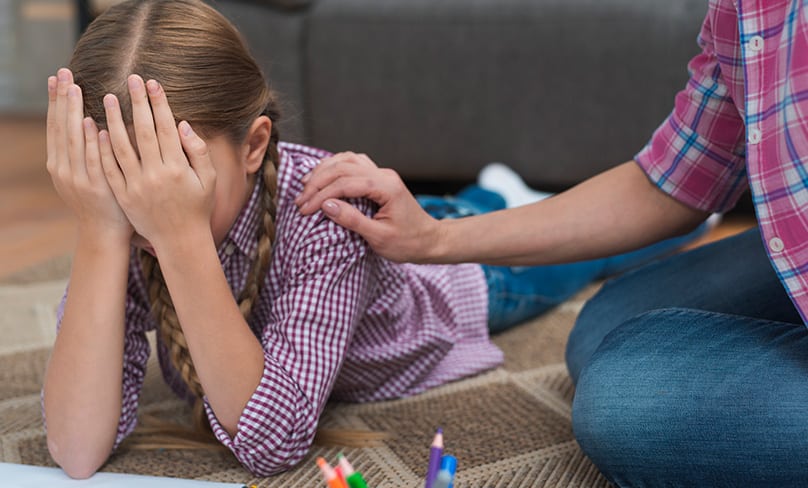
So, your child comes home from school, upset that they didn’t get on the team. Or missed out on a principals’ award. Or didn’t get in the camp group with their best friend.
There they are standing in front of you crying or visibly upset and it’s breaking your heart. What do you do?
Like most parents, it will be extremely upsetting to see your child disappointed and you may want to make them feel better by changing the outcome.
You might call the school and try to encourage them to alter their decision or even demand it.
Some parents might go a little lower key and work very quickly to make their child feel better – buying them a sweet treat, praising them immediately by placing some doubt on the validity of the decision, or letting their child have the day off school the next day.
Some parents might be so uncomfortable about their child feeling this emotion that they might try to remove the feeling, by denying it. These parents might tell their child they shouldn’t be so upset, to make them move on quickly.

All these actions are perfectly understandable as a caring response from a loving parent who is trying to do what they see is the best for their child.
Psychologists believe that some parents are more prone to these types of actions because of their ‘meta-emotion’, a term by John Gottman to describe feelings about feelings. It’s of interest because if parents feel that occasional anger or sadness in their child is a terrible thing, they are likely to do everything in their power to make it go away – very quickly.
But it is not always the best action. Indeed, if it is done every time your child gets upset then you risk them never learning how to cope with tricky feelings or events. That’s because you take away all difficulty and they never learn how to deal with challenge.
When they are adults, that might make them more likely to take out the credit card when feeling a little melancholy, head to the doughnut store when bored, or lash out when they feel unsure of what is coming next in a situation.
If you always deny them the chance to feel those emotions, they are less likely to be able to pinpoint what is bothering them and learn how to overcome or cope with it.
So, how do you deal with these emotions?

Gottman came up with a technique called Emotion Coaching. This is a method where parents put effort into noticing their children’s feelings.
If they see children upset, worried or sad, rather than immediately taking away those tricky reactions, they should name the feeling, validate their right to feel that way and possibly normalise their responses to a tricky or frustrating event.
It is important to be neutral in this and not to show your child that their feeling makes you in any way uncomfortable.
This is going to eventually make them feel better, because they will understand their physical reactions, feel understood, and take comfort in the fact that it is a normal response.
I know that’s not going to take away the feeling – but remember you are in this for their long term good. Teaching them to cope is going to make them better equipped to manage situations – this time and the next time as life invariably presents its ups and downs to your child. That’s going to make you feel a lot better about their future.
Something disappointing happened at school? Here’s what to do.
· Note the way they are behaving and remember not all sadness comes across that way. They might show anger or be nonchalant.
· Talk about the ways they might be feeling by naming the emotion and validating their right to feel disappointment or upset because of what happened.
· Show no discomfort in the fact that they feel that way and avoid telling them that their feelings make you feel a certain way. In this, you give them permission to feel without worrying about its impact on you.
· Support them. Show love through presence rather than presents in this moment. That will help them through it rather than bypass it completely.
